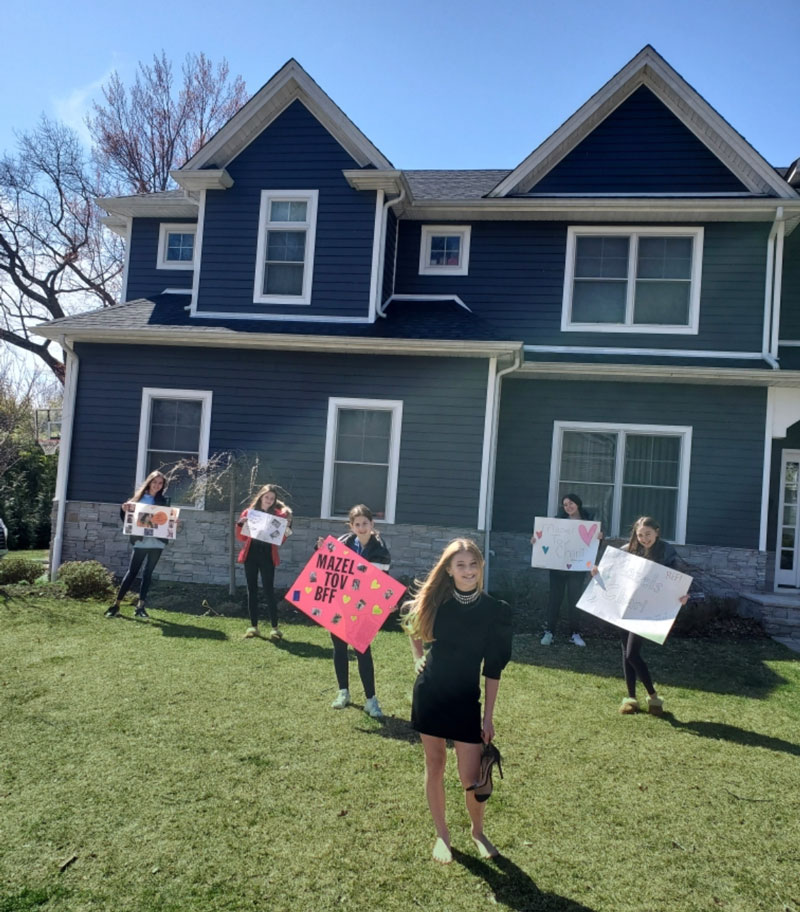
In the weeks leading up to Charli Goldstein’s Bat Mitzvah this spring, the family was busy finalizing all the last-minute details, from the photographer to the dresses. The year leading up to this moment had been incredibly trying for the Goldsteins, with Charli’s younger brother suffering a pediatric stroke from a head injury. He had finally recovered, and the Bat Mitzvah not only represented Charli’s transition into adulthood, but also the fact that this family was “back and ready.”
Then COVID-19 hit. “We had everything planned and ready to go,” says her mom Dana. “My 98-year-old grandmother is still alive—and really living for this day. She even went with Charli to get her tallit. But about two weeks before, my husband and I knew in our hearts the party wasn’t happening. And honestly, we were okay with it. Bat Mizvahs have become so out of control, and I hate to say it, but we were getting caught up in the nonsense as well.”
Fortunately, the family’s New Jersey synagogue, Temple Emanu-El, had been live-streaming Saturday morning services for quite some time. They felt confident they would still be able to hold the service, even if it was just with the rabbi, the cantor, and their immediate family. “That’s what it’s all about anyway…becoming a Bat Mitzvah and reading the Torah in the synagogue.”
Charli quickly got on board with the change, too. “She is very mature and knew it was the right decision,” says Dana. “The rabbi gave her the choice of postponing it, but she got to a place where as long as she could have the service, she was okay.”
When the day finally arrived, Charli was surrounded by her mom, dad, brother, maternal grandparents and uncle, along with Rabbi David-Seth Kirshner, and Cantor Israel Singer. Her other grandparents and uncle were unfortunately quarantined. They all stayed six feet apart and Charli’s family gave aliyahs from their seats instead of the bimah.
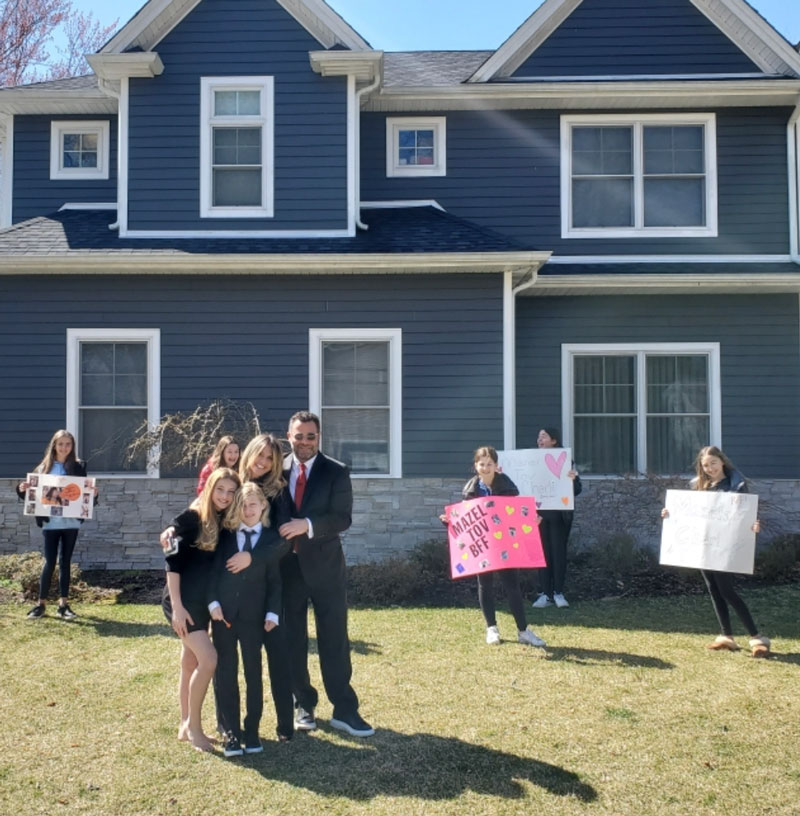
“She had worked so hard for two years,” says Dana. “Her Torah portion and speech were just beautiful.” Charli spoke about how she always knew about God but had prayed more this past year because of everything her family faced. She had learned to appreciate Judaism even more through the experience.
Meanwhile, close to 3,000 friends and family from around the country (eight times the original number invited) tuned in via Facebook live-stream. Members of the synagogue who didn’t even know the family personally were also drawn to watch. “At that moment, and that time, maybe they just needed something spiritual in their world.”
When the Goldsteins arrived home following the service, Charli’s best friends were spaced out in lawn chairs outside. More than 50 cars also paraded by to celebrate the milestone, one with Hava Nagila blaring through the sunroof.
“The whole thing was super special,” says Dana. “It was different and not what we anticipated, but we feel so lucky we were all healthy and saw what it truly meant to become a Bat Mitzvah.”
Charli wouldn’t trade that for the world. “It was just perfect,” she agrees. “I don’t think I’d change anything.” In fact, not having the party allowed her to relax, focus on the rabbi’s words and prayers and really think about all that she had accomplished. “I feel like if things were different and I had the party, I might have been stressed.”
“Plus,” she laughs, “one day I’ll get to tell my kids that I got to have my Bat Mitzvah during a worldwide pandemic.”
The Perfect Mitzvah
Charli sold concussion headbands as part of her mitzvah project. She raised $18,000 to donate to the hospital that treated her brother after his head injury and stroke.
Advice to Other Remote B’nai Mitzvah
“Just enjoy every moment and be thankful about all the positives…there are so many. Be with your family and appreciate the experience for what it’s worth.”—Dana

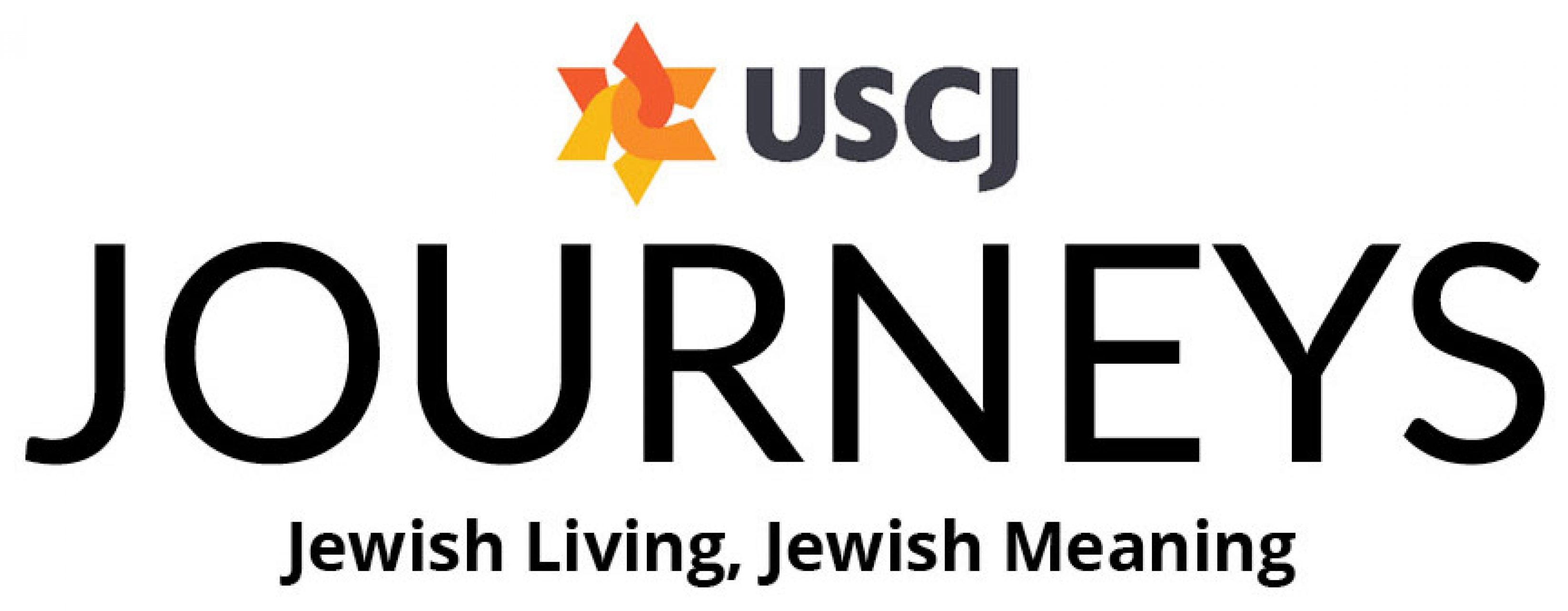
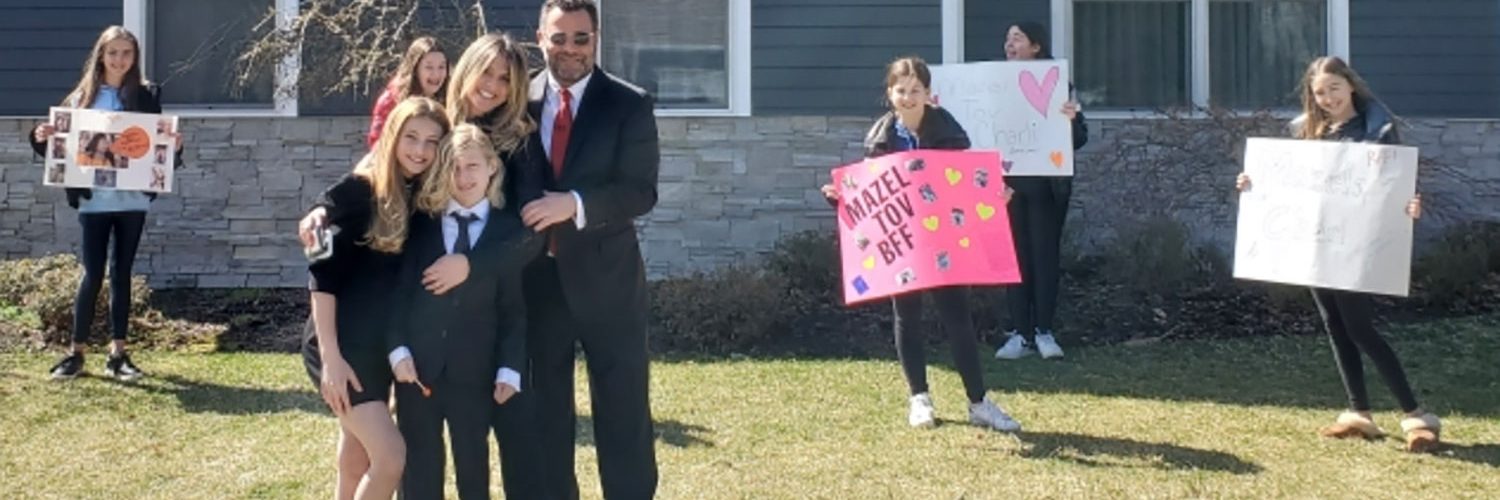

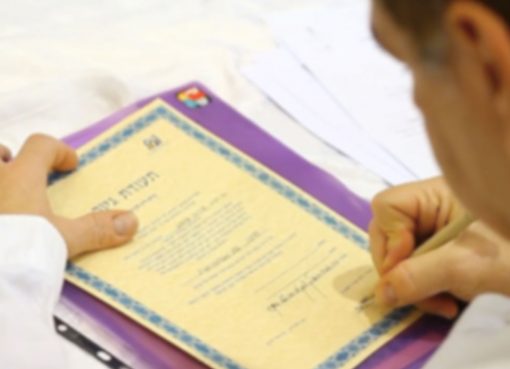
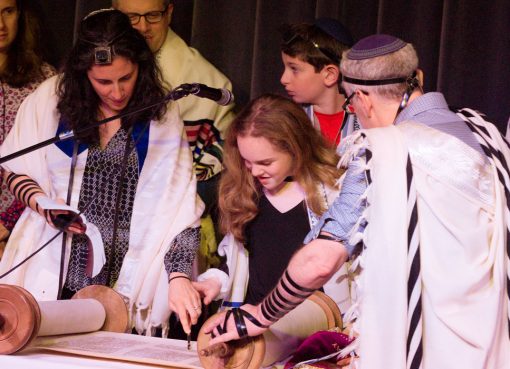


Comment here